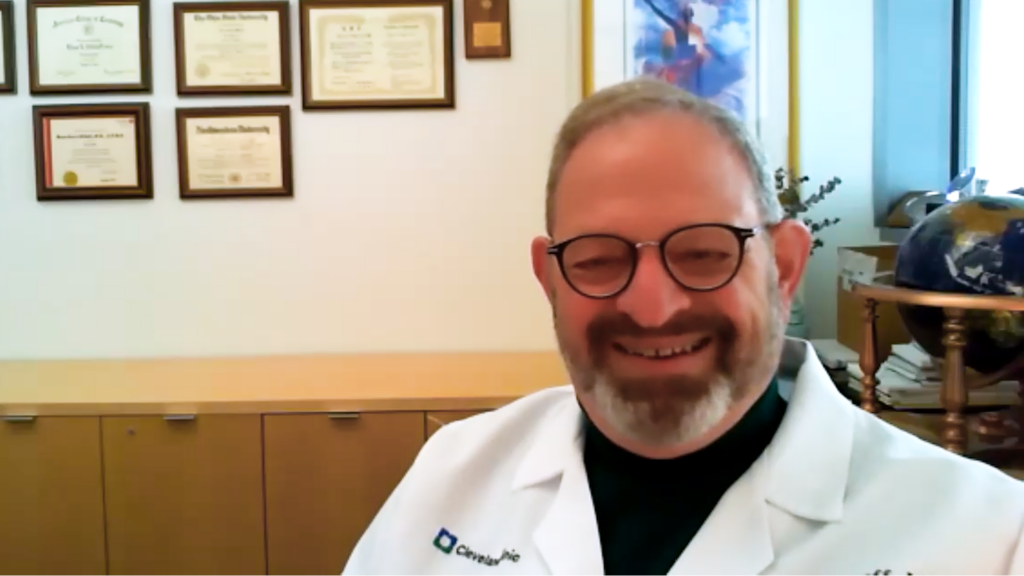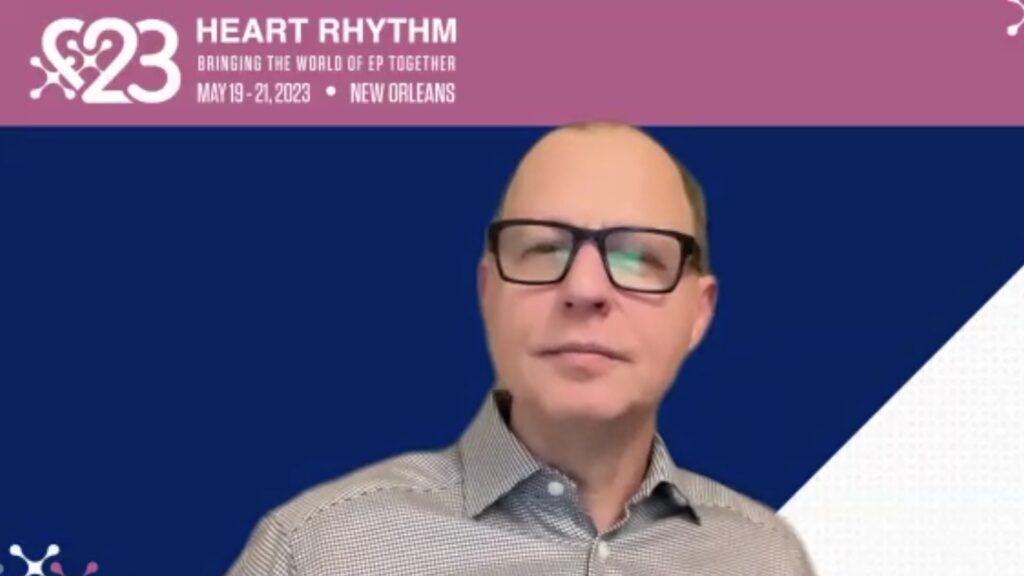The COP-AF trial looked at the use of anti-inflammatory colchicine in patients undergoing major noncardiac thoracic surgery and reducing risk of cardiovascular complications, especially perioperative atrial fibrillation and myocardial injury after noncardiac surgery (MINS). We spoke to Prof. David Conen (Population Health Research Institute, Hamilton, ON, Canada), principle investigator of COP-AF and presenter at the European Society of Cardiology Congress (ESC Congress) 2023 Amsterdam to discuss COP-AF, the results and what might be next.
The presentation entitled ‘COP-AF – Colchicine for the prevention of perioperative atrial fibrillation after major thoracic surgery’ was presented at the European Society of Cardiology Congress (ESC Congress) Amsterdam, 25–28, August 2023.
Questions:
- What are the current unmet clinical needs in patients who have major noncardiac thoracic surgery? (0:22)
- What is colchicine? (0:54)
- Please summarize the primary objective and design of the COP-AF trial. (1:23)
- What were the results of the study and the key take-home messages? (2:48)
- How might this study impact future clinical practice, and what are your recommendations for future study? (4:45)
Disclosures: David Conen has no actual or potential conflicts of interest in relation to this video, or in connection with the (EFPIA) HCP Code.
Support: Interview and filming supported by Touch Medical Media. Interview conducted by Zoë Sidwell.
Filmed as a highlight of ESC Congress 2023.
Transcript:
My name is David Conan. I’m a cardiologist and researcher at the Population Health Research Institute in Hamilton, Ontario. I’m affiliated with the McMaster University and I’m an Associate Professor.
Q. What are the current unmet clinical needs in patients who have major noncardiac thoracic surgery?
So patients who are undergoing major noncardiac thoracic surgery do have a high risk of developing cardiovascular complications after surgery.
Two of the most common complications are perioperative atrial fibrillation and myocardial injury after noncardiac surgery or MINS.
Patients who are suffering from these complications do have a high risk of developing additional complications during long-term follow up, which is why preventing those complications would be a high, unmet clinical need.
Q. What is colchicine?
So we hypothesized that anti-inflammatory treatment might be a safe and effective way in preventing perioperative atrial fibrillation and MINS, and we chose colchicine because colchicine has been widely used in clinical practice to treat other anti-inflammatory disorders, such as gout or pericarditis, and, it has a very strong effect and it’s cheap so that if our trial is effective, it would be easily implementable.
Q. Please summarize the primary objective and design of the COP-AF trial.
We designed COP-AF as a large international clinical trial which was done in 45 sites across 11 countries.
We enrolled 3,209 patients. All patients were randomly assigned to receive either colchicine 0.5 mg or matching placebo.
We included patients undergoing major noncardiac thoracic surgery over at least 55 years old, and we excluded patients who had pre-existing atrial fibrillation or contraindications to receive colchicine, or who needed colchicine for other clinical reasons.
We then started the study treatment on the day of surgery within 4 hours before the surgery, and continued study medication twice daily for a total of 10 days.
We then followed patients for a total of 14 days and we collected information for the two core primary outcomes, which were clinically important perioperative atrial fibrillation and myocardial injury after noncardiac surgery or MINS.
We collected information about these outcomes through troponin measurements after surgery and ECGs, all the clinical information that all the events were adjudicated by a clinical event committee.
Q. What were the results of the study and the key take-home messages?
So our study showed that colchicine did not significantly reduce the co-primary outcome of clinically important perioperative atrial fibrillation.
There were slightly fewer events in the colchicine group, but the difference was not statistically significant. The p value was 0.22 and the hazard ratio for atrial fibrillation was 0.85.
For the second co-primary outcome of MINS, we did not find a significant reduction off colchicine.
For the second co-primary outcome of MINS, colchicine did not significantly reduce the co-primary outcome of MINS, but we again found the trends of fewer events in the colchicine group, that did not reach statistical significance.
Directionally similar but all non-statistically significant results were found for key secondary outcomes such as myocardial infarction, stroke or composites of different vascular events.
We did a few post hoc analyses where we found a significant reduction of colchicine for the composite of two co-primary outcomes of MINS and clinically important perioperative atrial fibrillation.
Colchicine did increase the risk of diarrhoea, which is a well-known side effect of colchicine. The actual risk increase was about 5.9% in the colchicine group. Our results suggest that most of these diarrhoea events are transient and benign because patients with diarrhoea did not stay longer in the hospital than patients without diarrhoea, and patients with diarrhoea, only 1patient with diarrhoea needed a readmission to the hospital.
Q. How might this study impact future clinical practice, and what are your recommendations for future study?
While the two co-primary outcomes were not significantly reduced by colchicine, there is no direct recommendations for clinical practice.
However, given the consistent, signal we found for colchicine to reduce ischaemic events after noncardiac thoracic surgery, we do think that there is an encouraging signal that needs to be further explored in future studies looking at colchicine to prevent ischaemic events after noncardiac thoracic, but also after noncardiac surgery in general. So I think there is an encouraging trend that definitely needs to be explored in future trials.
Subtitles and transcript are autogenerated.
Watch more content from ESC Congress 2023 in Amsterdam here.
If you’re interested in seeing more about colchicine, you may be interested in our similar video content:
Jean Claude Tardif, AHA 2019 – Results from the COLCOT trial
You may also be interested in our similar journal content, published earlier this year in Heart International:











